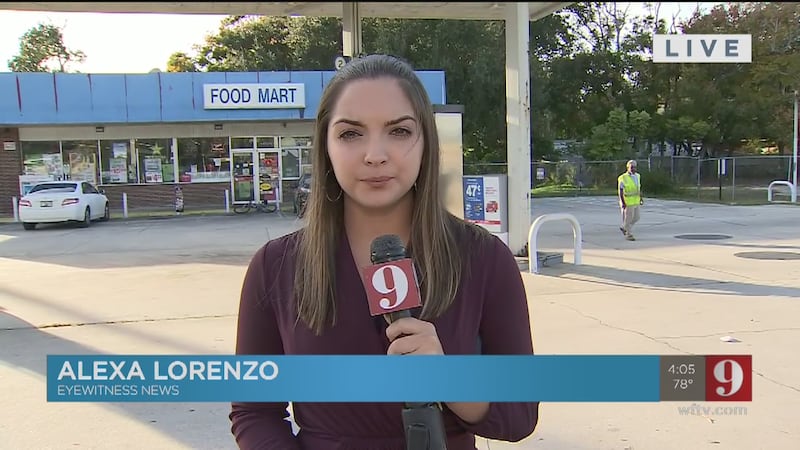WASHINGTON, D.C. — Depending on where you live, you may see electric vehicle charging stations often.
▶ WATCH CHANNEL 9 EYEWITNESS NEWS
However, experts said a lot of them have been set up by private investment, not the federal grants that have been promised by the government.
The Biden administration wants to create a national charging network for electric cars with 500,000 public EV chargers by 2030.
READ: Striking deals to end campus protests, some colleges invite discussion of their investments
Part of the Bipartisan Infrastructure Law includes $7.5 billion to build those stations. But more than two years after that pledge, progress is moving slowly.
“Yet to date, only eight charging stations - eight - have been opened,” said Rep. Rick Crawford, (R) Arkansas.
“Leading to legitimate questions and criticism of publicly funded charger deployments,” said Rep. Rick Larsen, (D) Washington state.
This week on Capitol Hill, lawmakers examined the progress of the National Electric Vehicle Infrastructure (NEVI) program, which provides federal grants to build these public EV charging stations.
They met directly with industry leaders like the major fuel retailer Love’s, which is known for its travel stops.
READ: Democratic US Rep. Henry Cuellar of Texas and his wife are indicted over ties to Azerbaijan
“Consumers will not purchase EVs if they are not confident in the charging network, not just how many chargers there are but where those charging stations are located,” said Kimberly Okafor, General Manager of Zero Emission Solutions at The Love’s Family of Companies.
Okafor told lawmakers Love’s has received $30 million in federal funding to install charging stations across its gas stations.
“Our industry has spent the last 60 years building out a competitive refueling network that has adapted over time, aligning with driver preferences, and we want to do this well into the future,” said Okafor.
However, other groups say accessing these federal grants isn’t simple because each state has its own program requirements.
Spencer Pederson at the National Electrical Manufacturers Association (NEMA) said even once you get the funding, there can still be delays.
READ: Allegiant Air to begin service from Orlando International Airport to these 3 cities
“We’re talking about additional generation, transmission, distribution, running level lines and cables, even the lighting that’s required around some of these, some of these charging stations, and then actually getting the charging stations in the ground themselves,” said Spencer Pederson SVP of Public Affairs at NEMA.
NEMA, along with some lawmakers, want the Biden administration to update its guidance for these federal grants to make the process more uniform.
“More consistency and clarity to states on some of the regulations and guidelines that they need to follow would certainly go a long way. Uniformity and standardization are always helpful,” said Pederson.
Full statement from the Federal Highway Administration:
The Biden-Harris Administration is investing in a clean future, providing historic funding to build out a federally funded EV charging network across the nation. With a first-ever National Electric Vehicle Infrastructure (NEVI) program, we are building a national EV charging network from scratch, and we want to get it right – to ensure a convenient, accessible and reliable charging network that makes it as easy for Americans to find a charge as filling up on gas.
To date, FHWA has made available $3 billion in combined NEVI and CFI funding to all 50 states, Puerto Rico, and D.C. to build the national charging network. You can view a breakdown of NEVI funding here. State DOTs determine projects to fund, and project sponsors should consult their State DOT on funding under this program. For more information on state deployment plans, see this FHWA website.
- NEVI: 36 states from across the country have already either issued proposals or awarded contracts for their first year of funding under the NEVI program. Of these, six states (OH, PA, NY, HI, ME, VT) have opened NEVI-funded stations, adding 33 charging ports across 8 station locations. With eight states having broken ground and several more scheduled this year, we anticipate more groundbreakings and ribbon cuttings in the coming months.
- CFI: As a complement to the NEVI Program, the Charging and Fueling Infrastructure (CFI) Discretionary Grant Program was designed to deliver chargers in rural and disadvantaged communities and fill gaps in the charging network where private sector investments have not yet reached. We recently announced $623 million to 47 projects nationwide to install approximately 7,500 EV charging ports in communities across the country. You can view a breakdown of CFI funding here.
Since the President took office, there has been a more than 75% increase in charging ports, and states are moving quickly to install more chargers stamped Made-in-the-USA. With more than 182,000 public charging ports across the country and an average of 900 new public chargers opening each week, we’re rapidly expanding the nation’s EV charging network to reduce range anxiety and build consumer confidence in purchasing EVs.
Click here to download our free news, weather and smart TV apps. And click here to stream Channel 9 Eyewitness News live.
©2024 Cox Media Group







